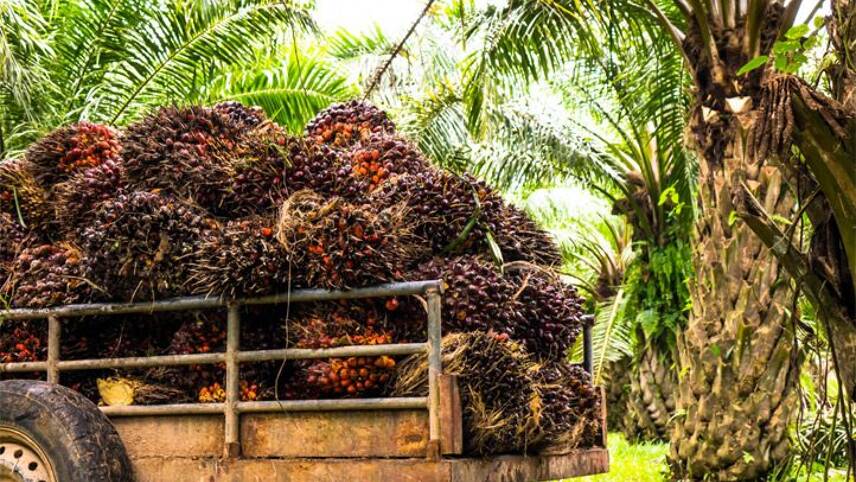Register for free and continue reading
Join our growing army of changemakers and get unlimited access to our premium content

Palm oil is estimated to have been the cause of more than 5% of the deforestation to have taken place in tropical forests to date
The Environmental Audit Committee (EAC) has today (4 January) published its report looking at the UK’s contribution and response to global deforestation.
Currently, the UK’s footprint on the world’s forests, classified by the EAC as per tonne of forest-based products consumed, is higher than the likes of China. The main commodities sourced by the UK include soy, cocoa, palm oil, beef and leather.
The EAC has called on the UK Government to work with international partners to cut back on products linked to deforestation. Public awareness should also be increased, with a Global Footprint Indicator created to help inform the public about deforestation.
The EAC’s chair Philip Dunne said: “UK consumption is having an unsustainable impact on the planet at the current rate. UK markets must not be flooded with products that threaten the world’s forests, the people whose livelihoods rely on them and the precious ecosystems that call them home.
“The Government’s ambition and stated commitment at COP26 to halt deforestation by 2030 was very welcome: but it is not on track now. Its legislation for a regime to require certain products to be certified as ‘sustainable’ before they can be sold in UK markets was welcome: but the implementing legislation has still not come forward. There is little sense of urgency about getting a rapid grip on the problem of deforestation, which needs to match the rhetoric.”
Globally, deforestation accounts for around 11% of emissions. Forests play a crucial role in supporting life on Earth, accounting for 80% of the world’s terrestrial biodiversity while also supporting the livelihoods of 1.6 billion people.
The UK has recently stepped up its efforts to combat deforestation, which the EAC welcomes.
At COP28, the Government unveiled its spending plans for £11.6bn of international climate finance, with £1.5bn earmarked for deforestation.
Nationally, the UK has legislated under the Environment Act to establish a regime that requires forest-based commodities to come from certified sustainable sources. The first four commodities were announced in December as cattle products excluding dairy, cocoa, palm oil and soy.
Defra has also set out the scope of the due diligence requirements. They will apply to all organisations with a global turnover of at least £50m, with potential exemptions for firms using less than 500 tonnes of any of the listed commodities each year.
While the EAC welcomes the policy, MPs have expressed concern over the implementation of the requirements, noting there is no timeline for when the wider legislation will be introduced. The EAC is also calling on the Government to cover other forest-based commodities such as maize, rubber and coffee.
WWF estimates that almost eight million hectares of primary forest has been lost globally in the last two years, since the Environment Act received Royal Assent. Global Witness has linked 50,000 acres of this to goods imported to the UK.
MPs warn that failure to implement such changes will stop the UK from contributing to the global biodiversity framework, set up at the CBD COP15 in Kunming and Montreal aimed at halting land and water deterioration, restoring 30% of degraded ecosystems on land and sea by 2030.


Please login or Register to leave a comment.